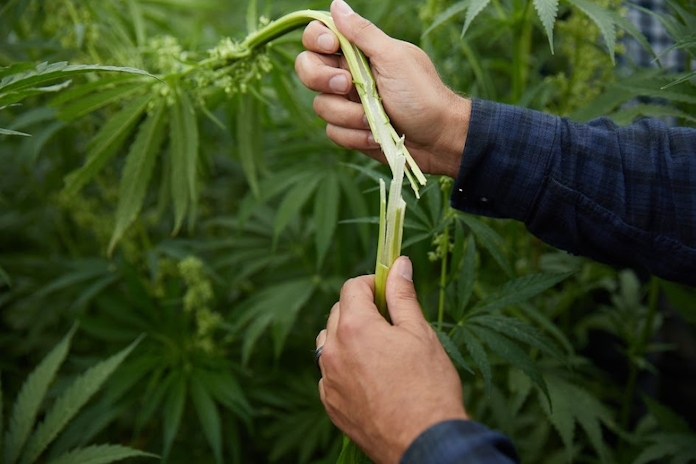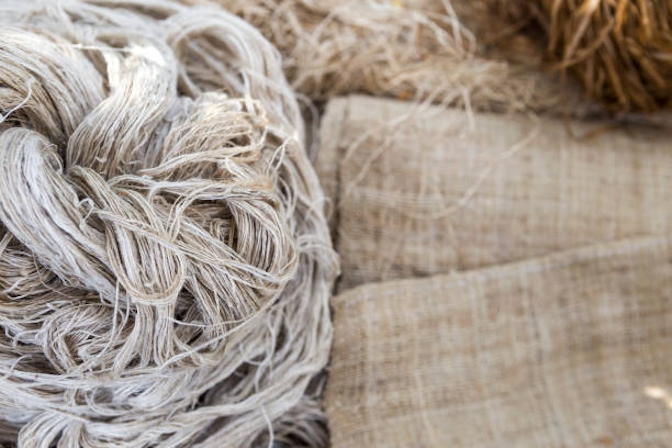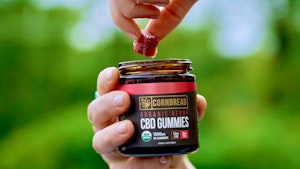
Photo by Blue Sky Hemp Ventures
30 Best Uses For Hemp & Their Benefits
Hemp: Unlocking a greener, healthier future with every fiber and seed.
Hemp is taking center stage as a powerhouse in sustainability and wellness, offering many applications that stretch from nutrition to the construction industry. This wonder plant from the Cannabis sativa family breaks all stereotypes by thriving with minimal water and zero pesticides, heralding a new era of eco-conscious farming.
As we dive into the heart of hemp’s utility, we discover a plant that’s as versatile as it is beneficial. So, what exactly can hemp do for us? Let’s navigate its myriad uses and unearth the potential in each part of this green marvel.
What is Hemp Used For?
Every segment of hemp, from its sturdy stem to its nutrient-packed seeds, plays a pivotal role in crafting a range of eco-friendly and health-promoting products:
Stem
The stem, composed of bast and wood tissue, is a source of strong, durable fibers and environmentally friendly building material. These fibers are breathable and moisture-absorbent and are also used in making ropes, textiles, and even interior trims for automobiles due to their elasticity and tear resistance.
Fiber
Beyond textiles, hemp fibers are making waves in creating sustainable paper, bioplastics, and even revolutionary energy storage solutions like less polluting alternatives to graphene and lithium car batteries.
Seeds
These tiny nutritional powerhouses enrich our diets with essential fats and proteins, doubling as a base for hemp oil.
Roots
Beyond bolstering agriculture with enhanced soil structure, hemp roots are key players in phytoremediation, cleansing the soil of pollutants.
Leaves and Flowers
Rich in cannabinoids, the leaves and flowers of the hemp plant are processed into oils, foods, teas, and body care products. They can also serve as compost, mulch, and biomass for power generation, showcasing hemp’s full-circle sustainability.
30 Best Uses For Hemp

Photo by: Sirirak
Hemp’s adaptability shines across industries, proving its worth as a raw material for an astonishing array of over 25,000 products. From creating durable textiles and sustainable building materials like hempcrete to its role in nutrition and wellness, hemp is reshaping how we view sustainable resources.
Here’s a snapshot of its diverse applications:
Textiles: Hemp fibers are woven into durable, eco-friendly fabrics for clothing and accessories.
Hempcrete: A sustainable building material made from the woody core of the hemp stem, offering excellent insulation properties.
Ropes and Cords: Bast fibers from the stem have been used historically and in modern applications to make strong, durable ropes and cords.
Paper: Hemp pulp provides an eco-friendly alternative to traditional wood pulp in paper production, requiring fewer chemicals and less water.
Biofuel: Hemp seeds and stalks can be processed into biofuel, offering a renewable energy source.
Bioplastics: Cellulose from hemp creates biodegradable plastics, reducing reliance on petroleum-based plastics.
Nutritional Supplements: Hemp seeds are a source of high-quality, plant-based protein and omega-3 fatty acids, ideal for dietary supplements.
Hemp Seed Oil: Extracted from hemp seeds, hemp oil uses span from cooking and salad dressings.
CBD Products: Cannabinoids extracted from leaves and flowers are used in oils, tinctures, and edibles for their therapeutic properties.
Skincare: Hemp oil and CBD are incorporated into lotions, balms, and serums for their moisturizing and anti-inflammatory benefits.
Hair Care: Hemp seed oil is used in shampoos and conditioners for its nourishing properties.
Insulation: Fiber from the hemp plant is used in natural insulation materials, offering an eco-friendly alternative to synthetic options.
Animal Bedding: The absorbent, low-dust qualities of hemp shives make them ideal for animal bedding.
Gardening Mulch: Hemp fibers serve as effective mulch, retaining moisture and deterring weeds in gardens.
Soil Remediation: Hemp’s deep roots can extract contaminants, making it helpful in cleaning and restoring soil.
Ink: Eco-friendly, sustainable hemp oil-based inks offer an alternative to petroleum-based inks.
Cosmetics: Hemp oil is a component in makeup for its skin-health benefits.
Protein Powders: Hemp seeds are processed into protein powder, a popular supplement among athletes and health enthusiasts.
Hemp Milk: A dairy-free, nutritious alternative to cow’s milk made from hemp seeds.
Beer: Some breweries incorporate hemp into their recipes for a unique flavor profile.
Wine: Hemp flowers and leaves can infuse wines, adding distinctive tastes.
Shoes: Durable and sustainable, hemp fibers are used in footwear production.
Bags: From backpacks to shopping bags, hemp fabric offers an eco-friendly option.
Jewelry: Hemp cords are popular in creating artisanal and sustainable jewelry.
Furniture: Hemp can be used in furniture for upholstery and structural materials.
Automotive Interiors: The strength and durability of hemp fibers make them suitable for car interior components.
Energy Storage: Research into hemp fibers suggests the potential for creating efficient, less polluting batteries.
Animal Feed: Hemp seeds and leaves can supplement animal feed with additional nutrients.
Art Supplies: Hemp produces canvases, papers, and even eco-friendly paints.
Eco-friendly Packaging: Biodegradable hemp-based packaging offers a sustainable alternative to traditional materials.
Possible Benefits Of Hemp Use

Photo by: Chriss_NS
Hemp’s journey from soil to products encapsulates a model of environmental stewardship, with its cultivation marking a significant step towards sustainable agriculture. It’s not just about the eco-friendly materials it provides but also about the economic growth it stimulates through job creation and innovation in green industries.
Nutritionally, hemp seeds and oils emerge as superfoods, while their derivatives, like CBD oil, introduce natural remedies for various health concerns. On the technological front, hemp’s contributions to developing sustainable materials and energy solutions spotlight its role in reducing our ecological footprint.
In weaving through the extensive uses and benefits of hemp, it’s clear this plant is not merely an addition to the global pursuit of sustainability and health but a cornerstone of innovative and eco-conscious living.
Hemp is a testament to the synergy between traditional agricultural practices and modern technological advances, charting a path toward a more sustainable and health-focused future.
Herb Recommended Products:
READ MORE










